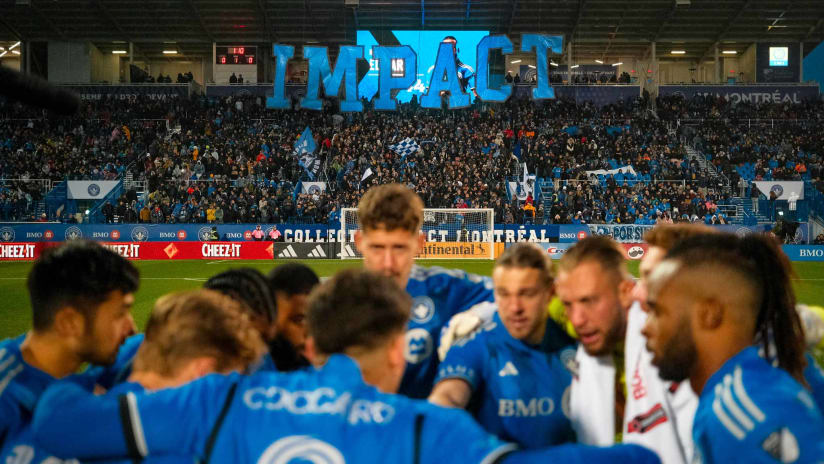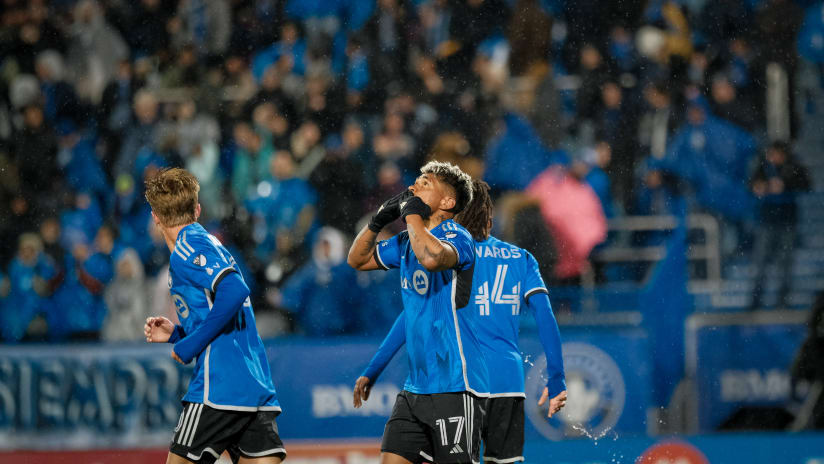The LA Galaxy and Seattle Sounders kick things off Tuesday, playing host to Honduran club CD Motagua and Guatemalan club CSD Comunicaciones respectively.
Wednesday, FC Dallas visits the powerful UNAM Pumas in Mexico, while the reigning MLS champions, the Colorado Rapids, welcome the champs from El Salvador, Isidro Metapan, to suburban Denver.
Finally, Toronto FC, winners of the most recent Nutrilite Canadian Championship, will be in Panama City on Thursday, to face the Panamanian champions, FC Tauro.
Five clubs... a first!
This marks the very first time that all five group stage spots potentially available to North American first division clubs were actually claimed.
Since the tournament’s format was adjusted in 2008 by instituting a group stage, which exists in all other FIFA confederations, two guaranteed spots have been reserved for MLS clubs.
One spot is guaranteed to the club that collects the most points in the regular season, thus earning a league trophy dubbed the “Supporters’ Shield”. The second spot goes to the playoff winners, which is the club that earns the MLS Cup.
If the same club captures both trophies, which happened most recently in 2008, the second “automatic” spot is given to the club that had the second-most points in the regular season.
Two other MLS clubs, the losing team from the MLS Cup final and the U.S. Open Cup champions, must pass through a qualification round and win their home-and-away series in order to advance to the group stage.
Six “lost” spots since the inaugural season
It’s during that qualification round that MLS clubs have been eliminated over the last three years, including the first edition of 2008-2009, when Toronto FC was trumped by the Montreal Impact as the club to represent Canada in the international tournament.
During that same tournament, the New England Revolution was eliminated by Trinidad and Tobago’s Joe Public FC, while Chivas USA was ousted by FC Tauro.
Over the following two seasons, the Puerto Rico Islanders, surprise semifinalists in 2008-2009, played the role of MLS spoilers, eliminating Toronto FC and the LA Galaxy in the qualification round.
The New York Red Bulls were eliminated in the preliminary round in 2009-2010, losing out to Trinidad and Tobago’s W Connection FC.
Those six group stage spots, squandered by MLS clubs since 2008, can primarily be attributed to the fact that “American clubs took such a long time to take this tournament seriously,” according to Impact Sporting Director Nick De Santis. “They saw it as a nuisance, an obstacle on the road to an already busy pursuit to a league championship.”
During the preliminary round matches, MLS clubs weren’t playing as many of their regular season starters, so as not to be faced with roster juggling during those extra six group stage matches and long road trips, especially during the critical final stretch of their domestic seasons.
Change in mentality
“I’m fairly certain that the notoriety attained by the Impact and Islanders in the tournament’s inaugural season made a lot of MLS managers realize the importance of the Champions League,” suggested Matt Jordan, the Impact’s director of soccer operations.
Furthermore, in each MLS city, soccer fans have become serious connoisseurs of the game and refuse to accept anything less than a full effort from their favourite clubs.
“It’s a question of pride,” explained De Santis. “Don’t you think the New England Revolution fans were humiliated in 2008 when their club lost 6-1 to Joe Public FC, a club with a much lower budget? After that, the American clubs appeared to realize that their credibility was at stake in matches like that, against teams from other countries. The mentality started changing when it became clear that a club’s public image was on the line.”
From that point on, the progression was constant. Two MLS clubs qualified for the group stage in 2008-2009, three in 2009-2010, four in 2010-2011 and finally, the full five clubs made it to the group stage this season.
“After winning the MLS championship in 2010, Real Salt Lake invested the time and money to take a run at the Champions League,” explained Matt Jordan. “Thanks to that, RSL came within one match of being named the CONCACAF tournament champions and earning the right to represent CONCACAF at the FIFA Club World Cup. That opened up the eyes of a lot of people.”
Aside from the prestige factor, the FIFA Club World Cup also offers winnings totalling 10M$, a sum of money that’s impossible to overlook, even for the richest American clubs.
“It’s very clear that MLS clubs are paying much more attention to the Champions League,” said Jesse Marsch, recently named the new head coach of the Montreal Impact for its MLS debut in 2012. “It’s not primarily a question of money, mind you. I think the players are being exposed more and more to the international scene, thanks to friendlies, tournament’s like the World Football Challenge and call-ups to the national teams. They’re adapting more easily to new styles and want to experience success outside of MLS.”
It’s also much easier these days for supporters to watch an array of CONCACAF Champions League matches, whether on television or over the internet.
International bragging rights
“That visibility is important for the clubs and their supporters, but also for advertisers,” noted Jordan. “MLS sends out a very strong message when one of its teams is named CONCACAF champion.”
Only two MLS clubs have pulled off that feat in the past, first in 1998 by DC United and in 2000 by the Los Angeles Galaxy.
By comparison, Mexican clubs have captured the title 16 times in the last 25 years, including the last six.
There seems to be a growing desire on the part of MLS clubs to end that streak and once again be crowned CONCACAF champions.
Martin Smith, Impact Media
CFMTL Media




